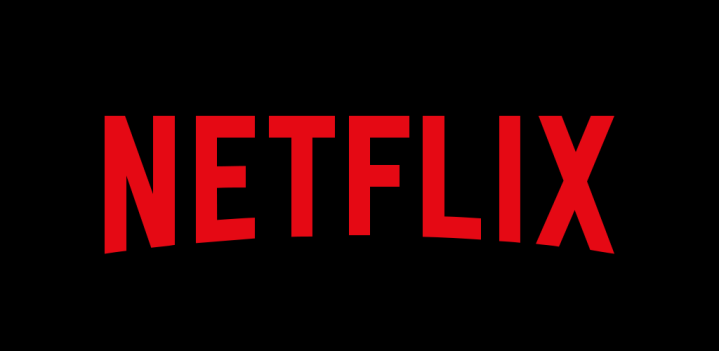Over the past decade, intellectual science fiction films have been few and far between. The last decade has seen some noteworthy attempts, from Inception in 2010, to Looper and Her in 2013 and 14, and Ex Machina and Arrival shortly after. In the last year, however, Blade Runner 2049, directed by Arrival Director Denis Villeneuve, underperformed at the box office, leading many Hollywood executives to believe that more challenging stories might not be a smart investment when it comes to ticket sales, instead opting for more sequels, reboots, or films based on whatever was trending (a-la The Emoji Movie). Netflix and HBO have, however, continued to invest time and money in science fiction projects that were more than aliens, superheroes, and lasers.

What Classifies As ‘Intellectual’

First of all, I would like to say that I am not necessarily against films that are made entirely for enjoyment and have no cerebral aspect whatsoever – the Fast and Furious franchise, the MCU (to a large extent), and the TMNT movies, to name just a few – I simply feel that movies that do have these more complex aspects are too few and are much better quality movies. Also, what is meant in this post as ‘intellectual’ or ‘cerebral’ is anything that leaves the viewer questioning their morals or what they believe when they have left the theatre.
Films like Fahrenheit 451 (based on Ray Bradbury’s novel of the same name), Terry Gilliam’s Brazil, or Alfonso Cuaron’s Children Of Men, for example, all look at the morals of the society of their day, politically (as in the censorship of Fahrenheit 451) or otherwise (as with the immigration policies seen in Children of Men). Films like Inception, Arrival, or The Matrix would also be included in this category as they question our perception of reality and films such as Blade Runner, 2001: A Space Odyssey, and Ex Machina look at what it means to be human. In summary, ‘intellectual’ or ‘cerebral’ science fiction is science fiction that is not aimed at the masses but more at a smaller group of viewers because the ideas or story are much more complicated than would be seen in your average film. Also, soft science fiction films would largely be included in this because they usually employ a ‘sci-fi-type’ idea to further explore an idea. For example, Her created a sentient idea to look at happiness and relationships, Okja uses the genetically engineered ‘super-pig’ to explore the morals of today’s meat industry among other things, and Eternal Sunshine of the Spotless Mind created the memory-removing device to explore Joel and Clementine’s relationship.
Last Year’s Netflix Originals And ‘Westworld’

Last year we saw a lot of sci-fi from HBO and Netflix. Everything from the neo-noir landscape of Altered Carbon (middle bottom) to the all-too-realistic comment on genetically modified animals that was Bong Joon-ho’s Okja (top left) and from the renewal of the mirror-universe in Star Trek: Discovery (bottom left) to the capturing of consciousnesses in Black Mirror (below).
Netflix especially has been pouring money into science fiction (and also, strangely enough, stand-up comedy) of all kinds but has been especially focussing on intellectual science fiction that will draw in a new kind of viewer for the already massive site (set to earn roughly $11bil this year). Though Netflix isn’t without its flubs (like Bright), overall feedback has been positive, leading Netflix to plan a massive number of upcoming sci-fi films aiming to be morally and intellectually challenging. Also, HBO created the most expensive pilot episode in history with Westworld and hit big, challenging viewers to not only guess ahead of the game but also questioning how consciousness is determined and what it really means to be truly sentient.

Annihilation

Garland told the Toronto Star ‘I don’t really give a s–t’ that it didn’t test well due to its intellectual nature (though it may have been due to several other issues with the film) and that ‘Ex Machina didn’t test well either’. Paramount, however, afraid of losing money, sold almost all international rights to Netflix (Netflix being much more willing to risk money on complex, interesting films). The fact that Netflix was so eager to pick up the film up shows that it is really trying to appeal to those that want complex, cerebral science fiction films and will likely to continue funding projects like these in the future.
Amazon Is Joining The Party

Upcoming Sci-Fi On Netflix And HBO
We do not know a lot about what Netflix is planning in the coming year and those projects that we do know of are being kept closely under wraps. On the sci-fi from, however, we do know of the upcoming Lost In Space series remake and Cargo, an emotional, post-apocalyptic thriller starring Martin Freeman.
HBO, on the other hand, is very open about their schedule, planning often years in advance. While Game Of Thrones will not be coming back until 2019, HBO has announced that George R. R. Martin will be adapting Who Fears Death to the screen and we will be getting a Fahrenheit 451 film this summer starring Michael B. Jordan and Michael Shannon (though it has already aired on TV in Spain, the US, and Russia).
For those who do not know Who Fears Death is a fantasy science fiction novel written by Nigerian-American writer Nnedi Okorafor. Published in 2010, Who Fears Death received many awards including the Carl Brandon Kindred Award for ‘an outstanding work of speculative fiction dealing with race and ethnicity’. The show will be produced by Martin and the screenplay will be written by newcomer Selwyn Seyfu Hinds. I am excited to see how it will be adapted to the screen and what other issues it will address.
In Summary…

I hope you liked this post and be sure to subscribe below to get more like this, or simply like our Facebook page. Also, please go ahead and share this content or check out some more of our content at ScreenHub Entertainment like my spoiler-free Solo review and our up-to-date Westworld timeline.

9 thoughts on “Are Netflix And HBO Providing A Home For Intellectual Science Fiction? – ScreenHub Entertainment”